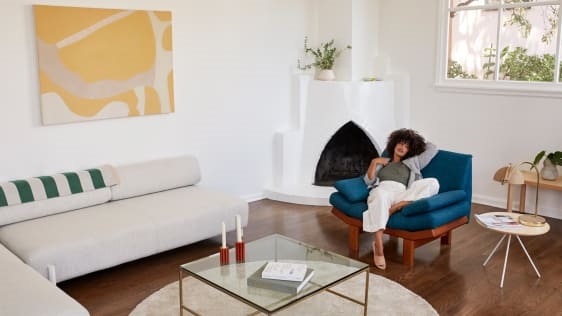Oasis Is The Home-Sharing Company That Doesn’t Consider Airbnb A Rival
“I don’t say disrupt,” says Parker Stanberry, CEO and founder of Oasis.
He may not say it, but he is certainly doing it—or trying anyway. The company, which he founded in Buenos Aires in 2009, is part of a growing cadre of Airbnb rivals who are looking to best the short-term home-sharing behemoth at its own game, and differentiate themselves at the same time.
Oasis manages a portfolio of high-end short-term rentals and offers them up to guests complete with clean towels, fast Wi-Fi, and even tiny shampoo bottles. “Our motto is home meets hotel,” explains Stanberry. Oasis offers homes that are a step up from the typical garage-turned-rental property that fill pages on Airbnb. Instead, these are drop-dead gorgeous homes in desirable locations akin to spending a long weekend in the pages of a copy of Architectural Digest magazine.
Thanks to having staff on the ground in each of the cities it operates in, Oasis can offer guests services like a fridge filled with breakfast items, a fully stocked bar (“That’s a mega bar, not a mini bar,” says Stanberry), and perhaps best for those intrepid travelers rolling off a red-eye flight into a new country, a so-called sidekick who can meet you at the airport, usher you to a waiting car, and walk you through the apartment you’ll be staying in.
That eliminates one of the more annoying aspects of Airbnb rentals—the dreaded key exchange—and ensures that you know where to find outlets and bathrooms and make sure you have the Wi-Fi password. Sidekicks can also offer guests insider knowledge about local hotspots or direct guests toward in-the-know destinations not featured on most tourist guidebooks (think: speakeasies, midnight tango clubs, or tiny galleries ).
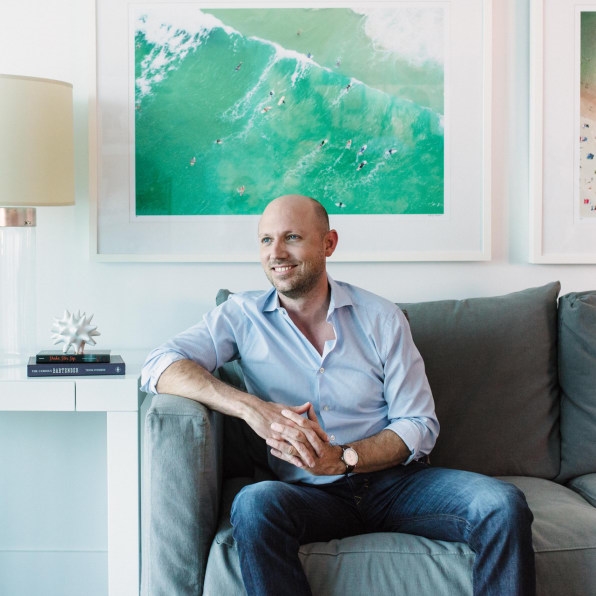
While good hosts on Airbnb can certainly offer some of those same services–and it’s admittedly hard to pry the tourist trade from Airbnb’s grasp—Oasis has a slew of city-specific perks for its renters (free fitness classes, spa discounts) as well as a few add-ons that are tempting to those of a certain income bracket, or willing to split the bill with a group of friends. Amenities include access to Oasis’s network of private clubs, in-house massages, personalized shopping tours, gallery crawls with a local expert, and pretty much whatever a tourist might be interested in doing on a trip. It’s all for an added fee, of course, but they are the sort of services many are willing to spend on during those little breaks from our budget-conscious reality we call vacations.
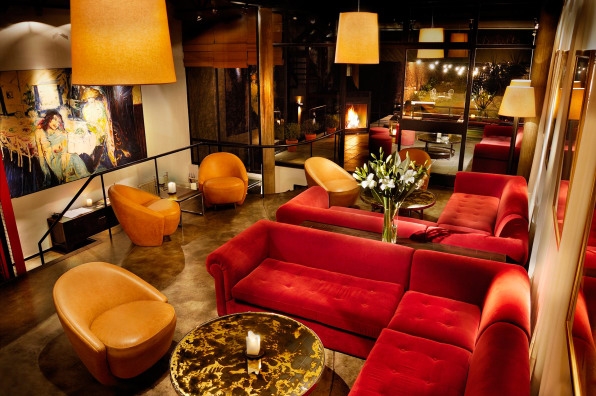
While travelers enjoy staying in luxurious, Instagram-worthy homes, the owners of those homes also appreciate what Oasis has to offer. Namely, they are responsible for the apartments and the guests. The owners hand over the keys and Oasis takes care of everything else from linens to toiletries, sending a portion of the rental fee to the owner, no work necessary.
Oasis is a clever business idea that actually predates Airbnb. (Stanberry started offering short-term rentals of homes in 2006; Airbnb was founded in 2008. ) However, Oasis the company was established in 2009 in Buenos Aires, about 6,500 miles from Silicon Valley. The location was ideal for rapidly growing the business, but made it difficult to find the investors that eventually turned Airbnb into a tech success story.
“I spent a fair amount of time talking to VCs there,” says Stanberry, who was told time after time that his business model was “too operational” and not scalable. I think there’s a little bit of prejudice, too,” says Stanberry. “Like, if the company is not from San Fran, from New York, or London, how serious can they really be?”
Despite the lack of interest from Silicon Valley investors, Oasis has bootstrapped its way to over 2,200 properties in 22 cities worldwide, thanks to a mixture of seed funding, angel rounds, and working with the nonprofit entrepreneurial incubator Endeavor.
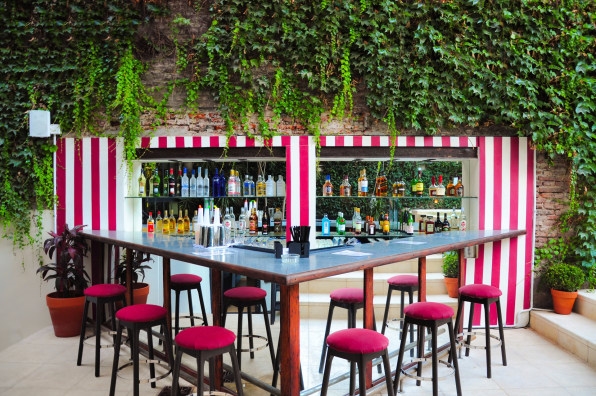
Now, Oasis has a little help in its fight. In August, Hyatt became a minority shareholder in the company, which will allow Oasis to expand its portfolio of luxury rentals and integrate, Borg-like, into the World of Hyatt while letting Hyatt gain a foothold in what it insists on calling the “private accommodation travel segment” (read: home sharing).
“Private accommodation is a fast-growing travel segment,” says Steve Haggerty, Hyatt’s global head of capital strategy, franchising, and select service, who says that Hyatt invested in Oasis as a way of expanding its guests’ experiences beyond traditional hotels as part of what it is calling the Unbound Collection.
“Travelers who book homes with Oasis are looking for something different than a traditional hotel experience,” Haggerty adds. “They’re leisure and often business travelers who seek more space for a longer time, but also want the peace of mind, personalized service, and amenities they expect when staying with Hyatt. So, while we are still at an early stage [with Oasis], we are excited about the opportunity.”
Of course, Oasis and Hyatt have company in this corner of the travel market, too. Airbnb has been rolling out “experiences” that can be signed up for with a click of the app, like art tours, in-home cooking demonstrations, or graffiti sightseeing trips. And if you need proof that Airbnb has luxury rentals on its mind, look no further than the $30,000-a-night house that Beyoncé rented out for Super Bowl weekend last year. To further entrench itself in the high-end market, Airbnb acquired the Canadian company Luxury Retreats in February. So far, though, luxury rentals are not what Airbnb is known for, which is an opportunity for Oasis.
Finding A Niche
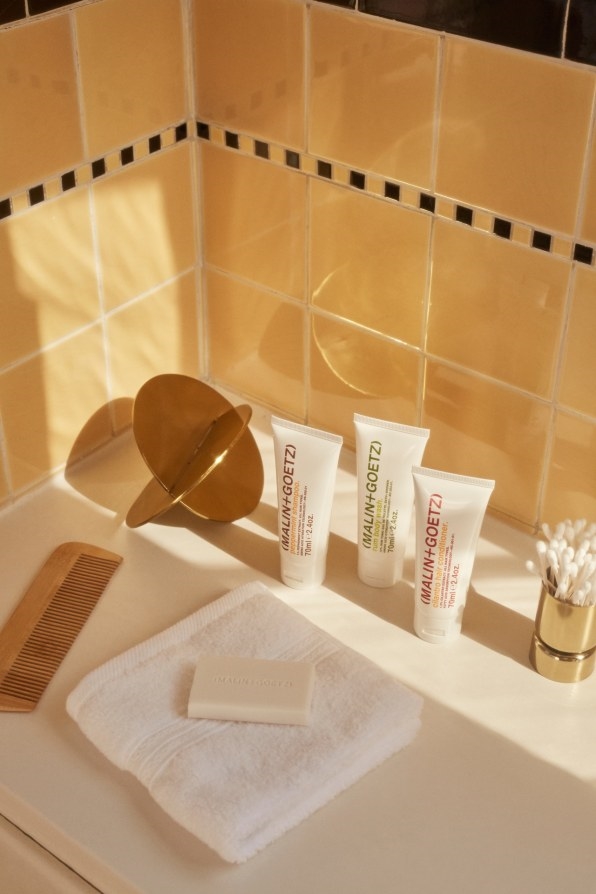
To find a foothold in the home-sharing market, Oasis has carved out a niche, focusing on longer stays, particularly for business travelers. “When you send someone to Bogota for a three-week project, you can send them to stay in a crappy extended-stay apart-hotel or you can send someone to a really cool apartment with us,” says Stanberry. He understands that Oasis—like Airbnb—isn’t always the easiest choice for a quick trip somewhere. “I’m not here to sell people on Oasis for a 36-hour trip from Boston to New York, when you’re going to be in your room for six hours,” he says. “That’s not what Oasis is here for.”
Instead the company has focused on long-term stays and business travelers. “We have a pretty tailor-made, corporate-friendly solution,” explains Stanberry. “Our people will go to, say, Nike and say, ‘Hey, you’re doing a big program in Rio and you need accommodations, and we have 40 mid-level apartments, 40 high-end apartments, and a villa for Michael Jordan, plus on- the-ground services like transportation.’”
While corporate travel services are helping the company, it is happy to host guests for a quick trip or even those visiting for “bleisure” (“I’ll use that buzzword,” says Stanberry), which combines business and leisure.
The strategy is working, and the company is expanding its portfolio around the world—from Sao Paolo to Chicago to Milan and Paris. Now, thanks to its partnership with Hyatt, it’s hoping to expand to even more cities and countries, with Stanberry ogling Asia, where the company has yet to leave a footprint.

While most people consider Airbnb the obvious elephant in the space, Stanberry doesn’t necessarily see it that way. In fact, he’s not sure Airbnb is a rival at all. “What we do is pretty hard. No one has really done it yet, at scale,” he says. “It’s a lot harder to do what we do, and that’s why we’ve never raised venture capital, and it’s been more angel investors and hospitality investors.”
“This is not just building an app and signing up 2 million users the next day,” he adds. “There is a ton of execution in what we do, and that’s hard.”
Of course, Oasis isn’t the only company trying to compete with Airbnb—and Hyatt isn’t the only hotel group angling for the home-stay market. In fact, back in 2016, AccorHotels took a 30% equity share in Oasis, only to turn around and purchase Onefinestay, another luxury rental platform, for $168 million, which is a bit like being ditched by your prom date. Stanberry, though, took it in stride. “We didn’t want to sell the company, so it was a bit of a sticky situation,” he explains.
Stanberry, who already spends 65% of his time traveling for Oasis, knows there’s a long road ahead to grow Oasis into the company he thinks it can be. Now that he has secured Hyatt’s backing, it’s an opportunity that Stanberry is not going to squander. “We definitely have our work cut out for us,” says Stanberry. “We’ve got to hustle hard.”
Fast Company , Read Full Story
(85)











